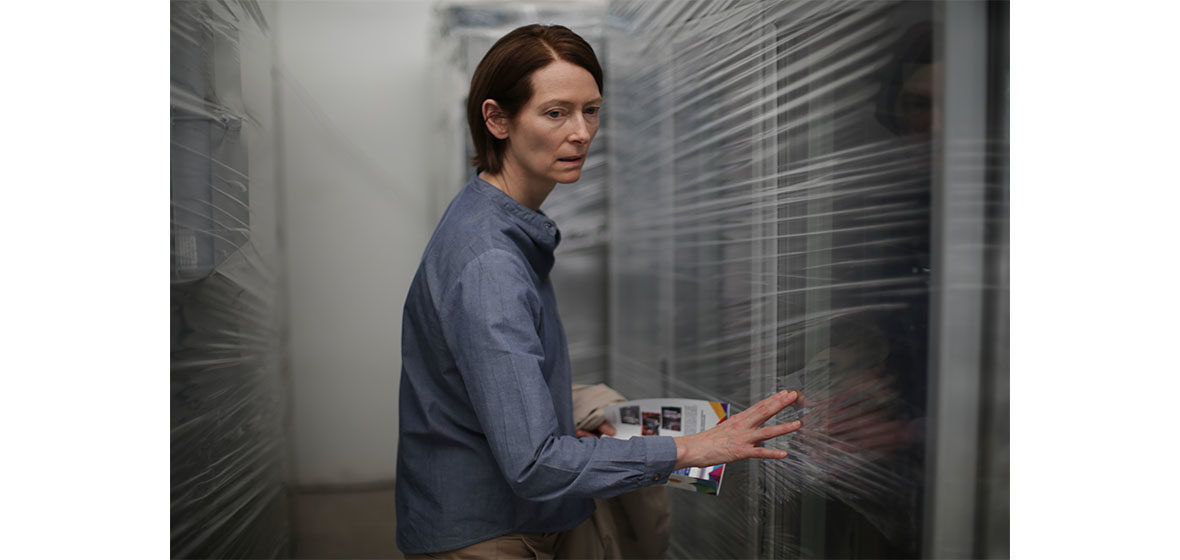Rating: *****
Memoria is a difficult film to watch. Not because it’s slow to the point of a comforting stillness, but because it takes us through a melancholic journey on the ephemeral nature of time. It’s difficult to watch because it forces us to pay attention to our brief moment in our space – the people we know, the memories we make, the irrefutable fact that nothing personal prevails. Maybe humanity will, but us – our own individual selves? Gone.
The Thai master Apichatpong Weerasethakul was never one to facilitate for his own sake. His films are beautifully layered with coatings of lyricism and soothing philosophies. I find his films very approachable, just because their raison d’etre comes not from an impenetrable and patronising idea but a genuine sense of wonder and goodness. See, for example, how he followed up his Palm d’Or Uncle Boonmee Who Can Recall his Past Lives, with the gorgeous Cemetery of Splendor, a film that is not simple but imbued with so much devotion for the simple act of love. Weerasethakul’s style is slow-paced, but for the benefit that it lets us pay attention to our surroundings – and it’s those surroundings that form the constant of his filmography. People are lost in the chaotic foliage of nature. Maybe it’s wishful thinking that spirit prevails when it’s all done and gone.
This time he goes to Colombia with Tilda Swinton. His first film outside of his own country is an opportunity for him to explore language as a place and the comparative similarities between places. Colombia is at the very opposite end of Thailand, and yet both sites look so close to each other in Weerasethakul’s lenses. The rivers, the trees, the stones – I like a filmmaker that looks at our planet beyond the constraints of cultural differences. Give me purity any day.
Jessica (Tilda Swinton) is in Bogotá to visit her ill sister and is startled by a strange and unfamiliar sound in the middle of the night. She befriends an archaeologist working on an excavation found in a tunnel under construction and a young sound designer helping her recreate the sound that still puzzles her. Sometimes she hears it again, but no one else seems fazed by it. Jessica isn’t haunted, nor does she think it’s a question of sanity. It’s just an experience that only she gets to live because our shared living experience is never identical. After a small epiphany, she returns to the sound studio only to find the man she knew doesn’t work there. This leads her to meet a fisherman by the river with the same name, with whom Jessica talks about the earth and our idea of memory. The man, at some point, dies trying to recollect a past moment in his life, but in the same frame he goes, so he comes back again.
It’s Weerasethakul’s effortless visual poetry that lingers throughout. Swinton is always reliable and knows how to adapt her wide range to every movie she leads—here slowing down her movements to the pace of Weerasethakul’s elegance. I was entranced, taken aback by the power a single image has if it remains – like an idea that hangs around you, befriends you, sees you through the time and space of the film.
If you let it, Memoria can surprise you. It’s not difficult, but I found it one of his most complex films. Perhaps the many ideas that converge don’t all stick with you, but after discussing them with someone else, you may find what Weerasethakul means by our single unique experience in a shared space. And in the process, if you let it, it can shatter you. We are not eternal, none of us. We’re written in water and lost in time. After the screening I attended, another colleague film critic said, “well, this one won’t set the box office on fire”. It definitely won’t, but let it in, and it can affect you more than all blockbusters combined in this decade alone.




